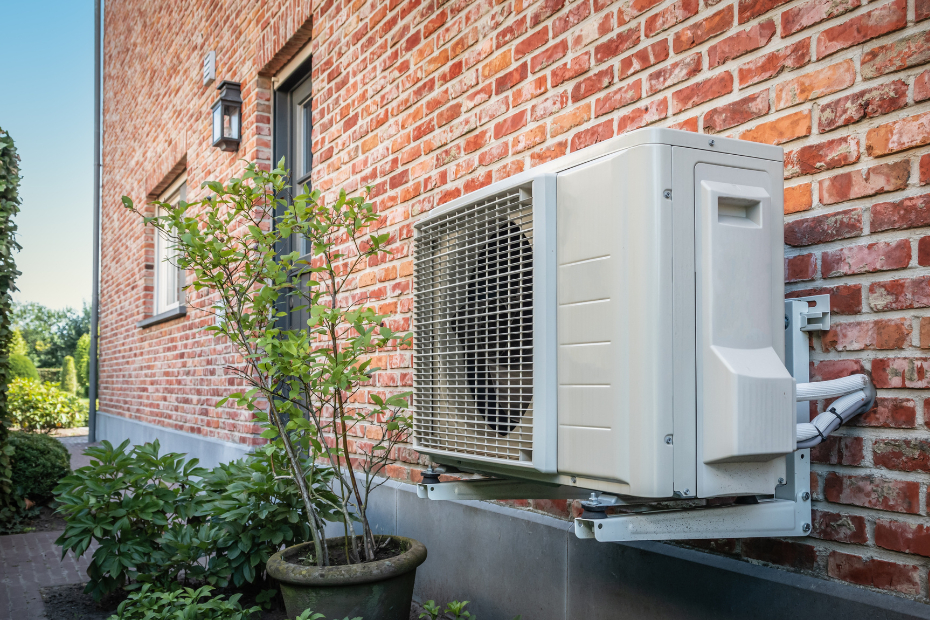As expert renovators and seasoned builders, HGTV Canada’s Bryan and Sarah Baeumler offer some valuable advice about where you can put your renovation dollars to help maximize your home’s value today and down the road.
1) Add to the Safety of Your Home First.
When evaluating the work that needs to be done to your home, take a look at the foundational elements. Is it structurally sound? Is it electrically safe? Does it have mold or asbestos?
“The real value of the home is in the asset. Not what the asset looks like,” Bryan is famous for saying. For that reason, tackling basic structural shortcomings in your home is far and away the first step to your renovation process, he says. Not only will these improvements help keep you and your family healthy and safe, but they will also be appreciated by potential buyers if you look to sell. A safe home is table stakes.
2) Make Improvements for Longevity, Efficiency and Sustainability.
While this type of renovation isn’t exactly sexy, replacing your roof, insulation or furnace may help your home run more efficiently. Typically these are projects you only need to tackle every 10-15 years.
A job such as replacing your windows is also a smart one to take on; in fact, the Appraisal Institute of Canada estimates that replacing windows will provide a return on investment of 50% – 75%.1 And since old, inefficient windows and doors may be the main culprits in a home’s energy loss; replacing these features could save you money on your heating and cooling bills immediately. Plus, if you install certified energy-efficient systems, you may enjoy some tax breaks and/or rebates on the work you do.
3) Renovate for Improved Function.
Where do you spend the most time? Kitchen? Family room? TV room? If the focal point of your home doesn’t have the layout or space you need to enjoy it properly, making improvements in these areas will increase your overall enjoyment of your home. This type of renovation is especially important if you’re planning to stay in your space for the next several years — you want to feel comfortable in your home as time goes on.
And keep in mind, if your kitchen is your primary room, kitchen renovations do tend to hold their value. According to the Appraisal Institute of Canada (AIC), you can expect a 75% – 100% return on a major kitchen remodel or extension.2
4) Make Inexpensive Cosmetic Fixes.
It can be amazing how refreshing the cabinets or replacing the countertop can make it feel as if a kitchen has gotten a major facelift. Even a new coat of paint can make a world of difference. Replacing light fixtures and door handles can also add modern touches and improve the look of your home for a minor investment. Ultimately, if a few small fixes will help you better enjoy your home and experience what it offers to the fullest, it’s worth spending the money.
The bottom line is, it’s smart to spend your money first on what makes your home function safely and efficiently — and continue to appreciate as a valuable asset. Chances are, your home was your biggest single purchase, so you want to take care of it. Bryan’s advice is this: If you’re going for a cosmetic update, see what can be achieved with a minimal budget — and save the big bucks for the structural fixes that will add real value to your home.
For any renovations that involve electrical or plumbing work — or any structural upgrades — it's a good idea to hire a contractor. Baeumler suggests you consider these points to find the right one for you.
Sources:
2 – MoneySense
This article is intended as general information only and is not to be relied upon as constituting legal, financial or other professional advice. A professional advisor should be consulted regarding your specific situation. Information presented is believed to be factual and up-to-date but we do not guarantee its accuracy and it should not be regarded as a complete analysis of the subjects discussed. All expressions of opinion reflect the judgment of the authors as of the date of publication and are subject to change. No endorsement of any third parties or their advice, opinions, information, products or services is expressly given or implied by Royal Bank of Canada or any of its affiliates.



















